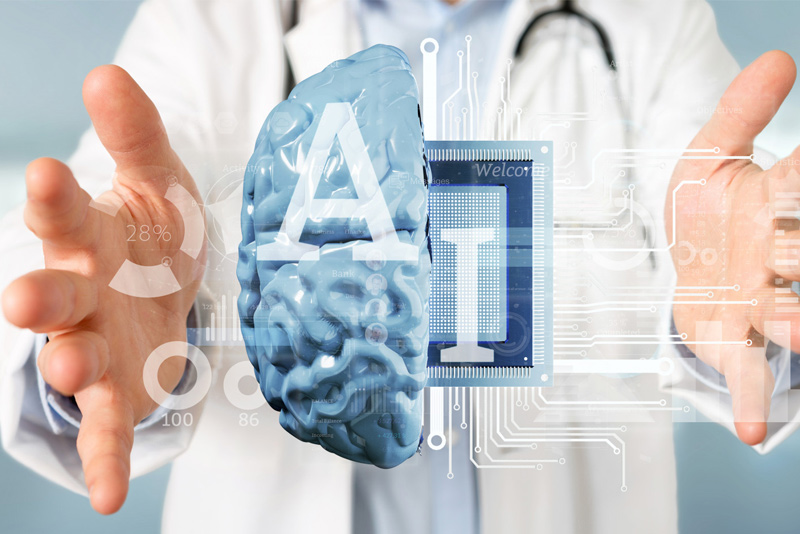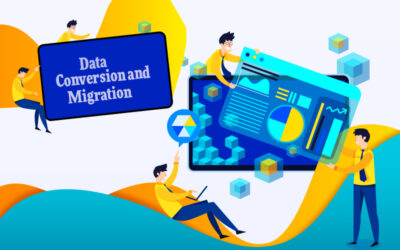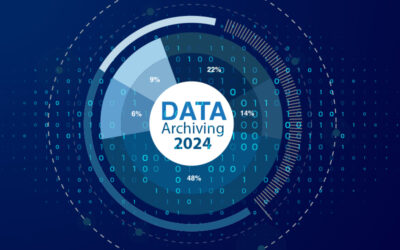The evolution of healthcare is one of the greatest success stories of modern times. The ongoing COVID-19 pandemic, rising threat of antibiotic-resistant drugs and increased healthcare costs have made significant improvements in the medical field. The concept of digital transformation has a fundamental impact across industries all over the world and the healthcare sector is no exception. In fact, the sector is heavily relying on data conversion services to meet the challenging digitization demands. New technology like Artificial Intelligence (AI) is gaining significant momentum in the healthcare industry and is predicted to have the potential to significantly transform the industry and make it more scalable and sustainable. When compared to other applications such as medical diagnostics and medical transcription, AI applications are also being used in healthcare document digitization. With investors pouring $4 billion into healthcare AI startups in 2019 alone, it is pretty clear that the industry is undergoing a radical transformation. AI is becoming instrumental in speeding up operations like drug discovery and diagnoses, while robots will assist in complicated surgeries.
How Is the Impact of AI in Healthcare Today?
Artificial intelligence (AI) has the potential to transform how healthcare is delivered. In simple terms, AI is the capability of a computer program to perform tasks or reasoning processes that we usually associate with intelligence in a human being. Right from applications that help patients manage their care themselves, to online symptom checkers and e-triage AI tools, to virtual agents that can carry out tasks in hospitals, AI can help provide better care outcomes and improve the productivity and efficiency of care delivery. The technology can also improve the day-to-day life of healthcare practitioners, allowing them to spend more time looking after patients and by doing so raise staff morale and improve retention. AI can help improve the experience of healthcare practitioners, enabling them to spend more time in direct patient care and reduce burnout. Even though the scale of many of these solutions remains small, their increasing adoption at the health-system level indicates the pace of change is accelerating.
Significant Application Areas for Medical Artificial Intelligence (AI)
Nowadays, artificial intelligence is considered as the next frontier for healthcare innovation. In most cases, the major question that arises – is about how artificial intelligence (AI) can have a potential impact in medical field and how it can improve user experience and increase user adoption. AI in healthcare is implemented for operating on both structured and unstructured data. Here discussed are some of the most crucial applications for medical AI –
- Medical Diagnosis – Applying artificial intelligence technology can greatly augment the capabilities of medical teams by automating routine diagnostic operations, reducing human errors and saving time. In fact, the technology has reached a peak level wherein applications like cancer detection can be performed at the same level as that performed by trained and licensed radiologists. As AI works at machine speed, the automated analysis of medical images (like MRI scans and X-rays) happen much faster, allowing healthcare providers to provide diagnosis in less time. In fact, AI researchers are applying machine learning strategies to track the recent spread of the coronavirus global pandemic, by analyzing web data, social media, and other metadata.
- Robotic Surgery – Performing surgical tasks requires an immense degree of care and accuracy. Whether routine or specialized, these surgical procedures are often time-consuming that can overburden the surgeons creating a higher risk of human error, with potentially disastrous consequences. While robots won’t be fully replacing surgeons any time soon, they can complement surgeons’ capabilities with better imaging and greater precision in factors like speed, depth and trajectory. On the patient side, they would benefit from quicker healing time, reduced pain and minimal scarring from robotic-assisted surgeries that are becoming more common. However, as surgery is often complicated and requires adaptability, it cannot always be automated according to pre-programmed behaviors. There is a growing need for AI that uses deep-learning data to supervise the process and augment surgical capabilities.
- Precision Medicine – The major goal of precision medicine is to build and optimize diagnostic and treatment trials and develop more accurate prognoses. With AI technology, clinicians have the opportunity to act more quickly with improved outcomes, detect the early onset of cancers and other diseases, and develop customized therapies and personalized medicine. AI has the capability to analyze ever-increasing amounts of unstructured and unlabeled data sets to capture and understand key variables in everything right from environmental factors to genetics to a patient’s previous medical history.
- Virtual Assistants – AI –powered virtual assistants such as Amazon Alexa and Google Assistant are already being used by people for some years. With significant advancements in technology, similar novel concepts are being introduced in the healthcare sector as well. As many nursing routines are repetitive and do not necessarily require a human touch, in such cases, these routine processes can be automated to free up time for nurses so that they can focus on other things that only they can do. Virtual nursing assistants and chatbots are important factors in the changing healthcare equation. These services can guide patients through various self-care routines, offer medical advice, and automate routine operations like appointment scheduling and patient admission and discharge, which are particularly useful for remote patients.
- Minimize Clinical Variation – A sizeable chunk of the US healthcare expenses is said to occur from clinical variation. Clinical variation refers to the wrong usage and wastage of healthcare services and resources. AI technology can be used to analyze huge quantities of data, which in turn helps reduce variation costs. Hospitals and other health research facilities need to prepare themselves for this transition into a data-driven future. AI advances in this regard are only made possible by the huge amount of gathered data, which will require solid IT infrastructure and sizeable computing power to effectively analyze the information within the required timeframes.
- Drug Discovery – Pharmaceutical development is a process that takes years of research to develop new drugs and test them for efficacy and safety. One of the major reasons for this long time span is that it involves analyzing a wide range of data sets. With the digitization of health records and other medical documents, AI and automation technologies can be used to scrutinize data, analyzing relevant insights at a quicker pace. For instance, the global pharmaceuticals company and developer of one of the leading COVID-19 vaccines, Pfizer, uses the IBM Watson machine-learning platform to change drug discovery for making it better and more effective.
- Administrative Tasks – It is estimated that the United States spends about 17 percent of its GDP on healthcare. Much of this is due to burdensome administrative tasks. For instance, in the U.S., almost half of healthcare funds are spent on administration. By leveraging the power of intelligent automation to many of these routine operations, costs could be reduced to a great extent. More health businesses around the world are now leveraging the power of AI to automate decision-making, create financial and administrative efficiencies, automate parts of their supply chains, or streamline regulatory compliance functions. AI can help overcome the challenges of scale, allowing hospitals to make better use of their resources.
- Analyze Staffing Needs – With healthcare institutions around the world facing staffing and budgetary concerns, developments in transforming AI technology towards predicting manpower requirements at different periods have found some success. With COVID-19 pandemic underway, healthcare providers can use historical data cross-referenced with patient numbers, and estimates of the virus spread movements, to determine when they need to scale up staff in time to deal with the outbreak in their region.
The major role of artificial intelligence (AI) is to approximate human decision-making regarding health and wellness. As mentioned above, the technology has been used in wide areas of medical processes including medical imaging, drug development, personalized medicine, treatment process outlining and patient monitoring. In addition, several AI-enabled algorithms and software are employed to analyze complex medical data and arrive at accurate conclusions with least human intervention. The roadmap to success of AI in the medical industry lies in effective implementation in enhancing productivity and efficiency to transform care delivery services by way of workflow optimization; reducing unwarranted variations while expanding precision medicine and improving and speeding up diagnostic accuracy. Despite these amazing benefits and developments, scaling AI in healthcare remains a big challenge. Data sets need to be curated, cleansed, and annotated accurately. These labor-intensive tasks are best outsourced. Outsourced services from a reliable medical document scanning company can help speed up AI model development and utilization without compromising on quality.




